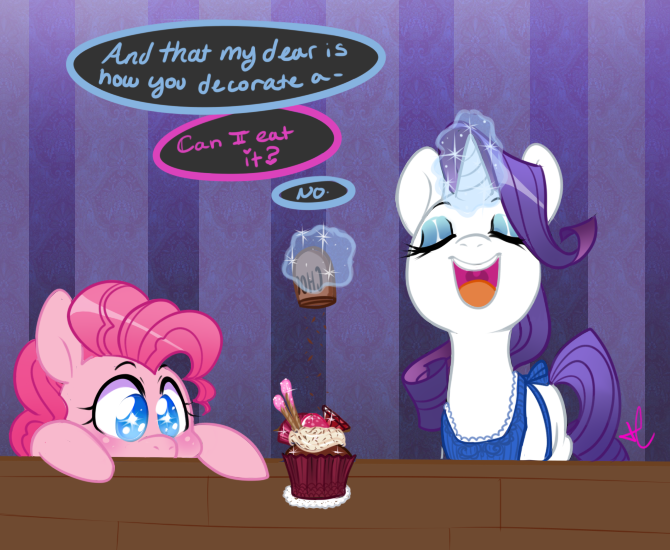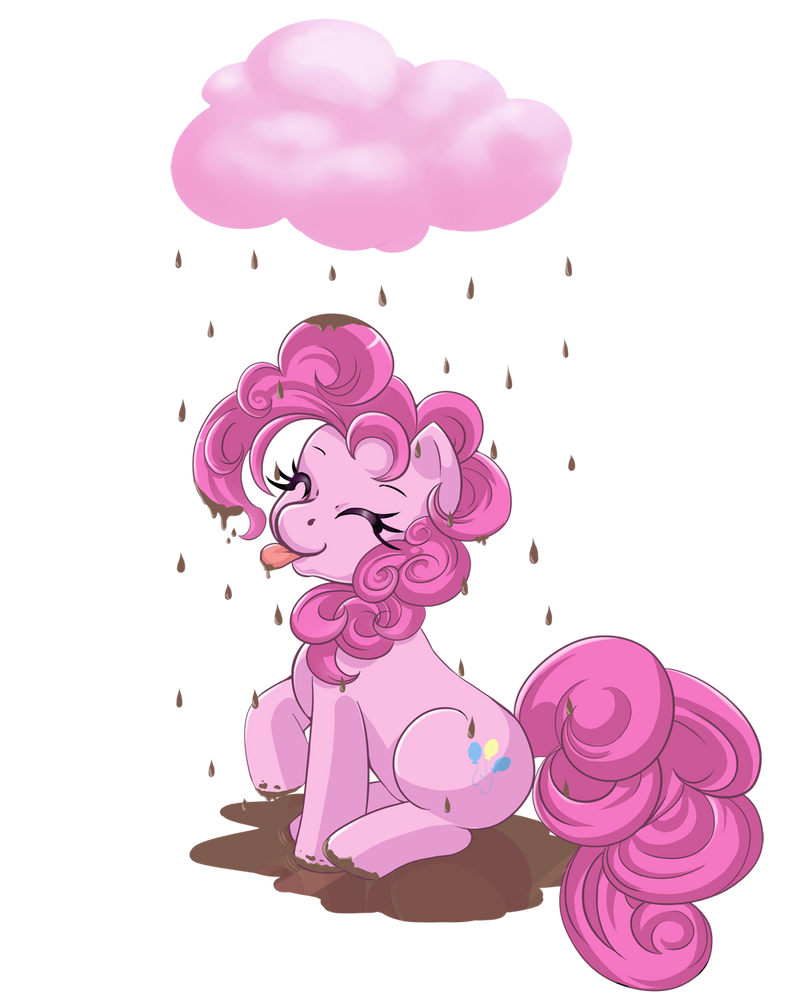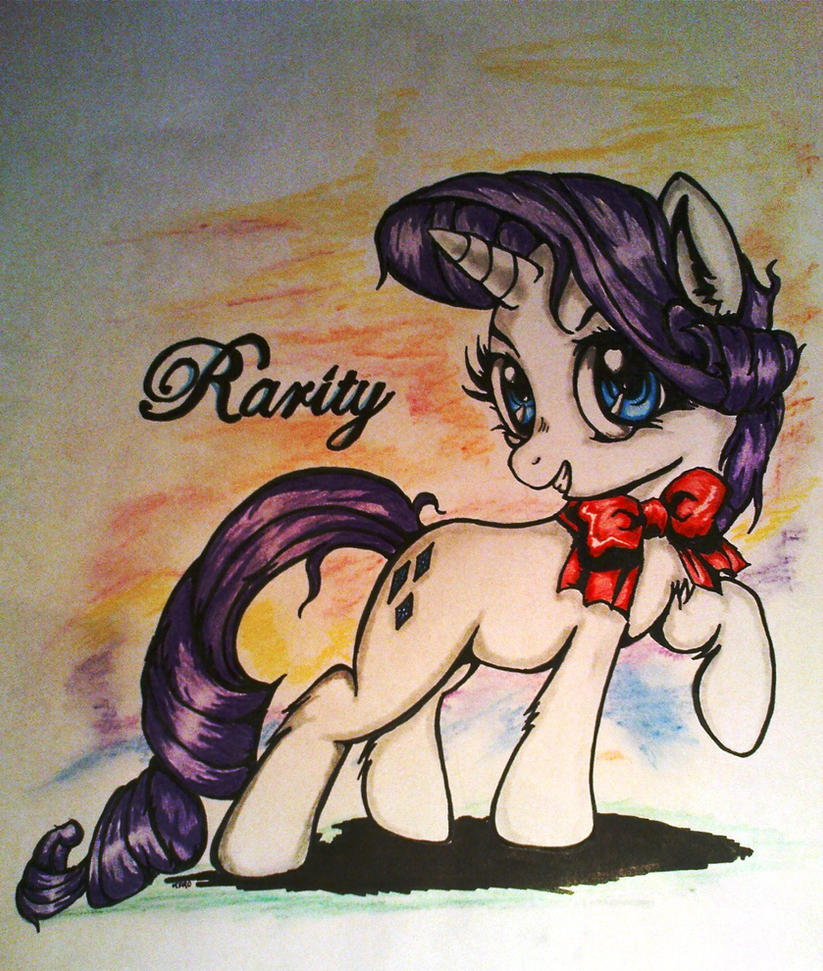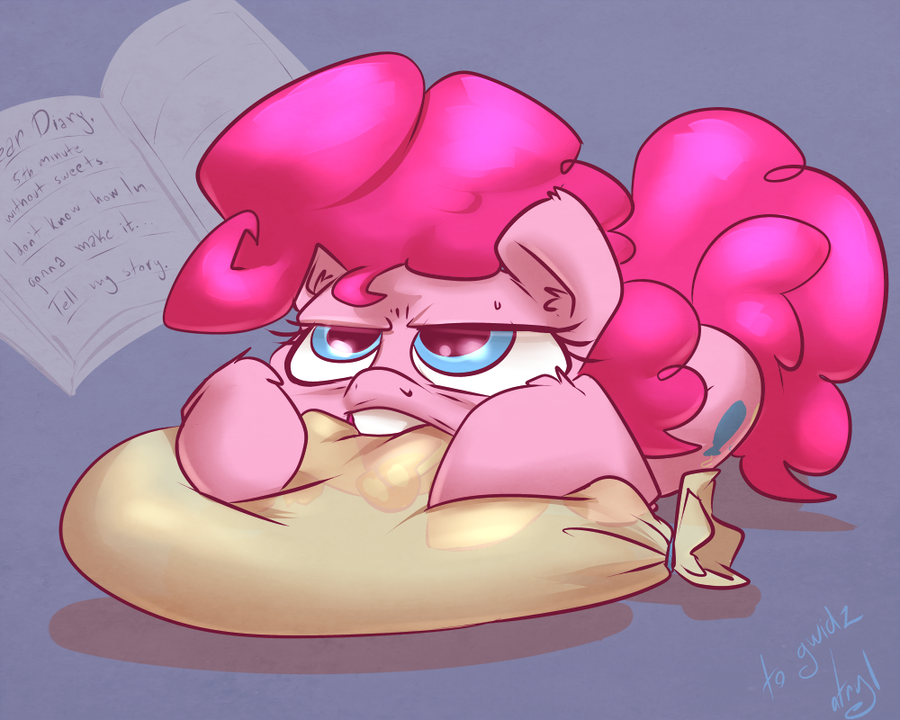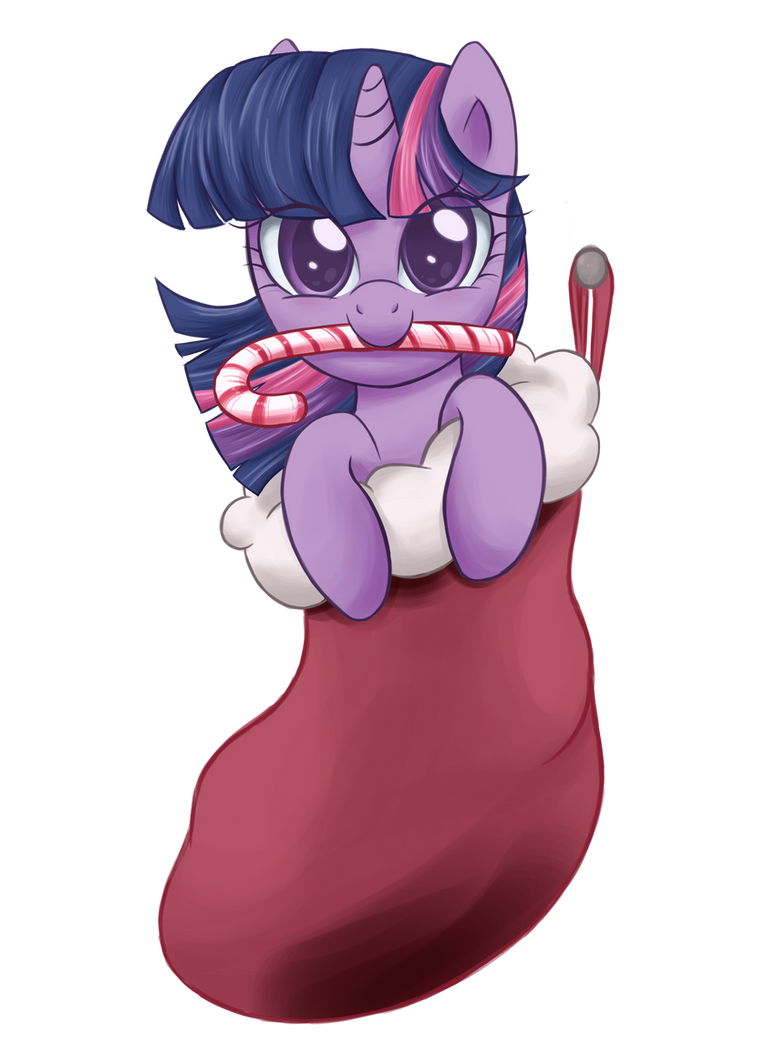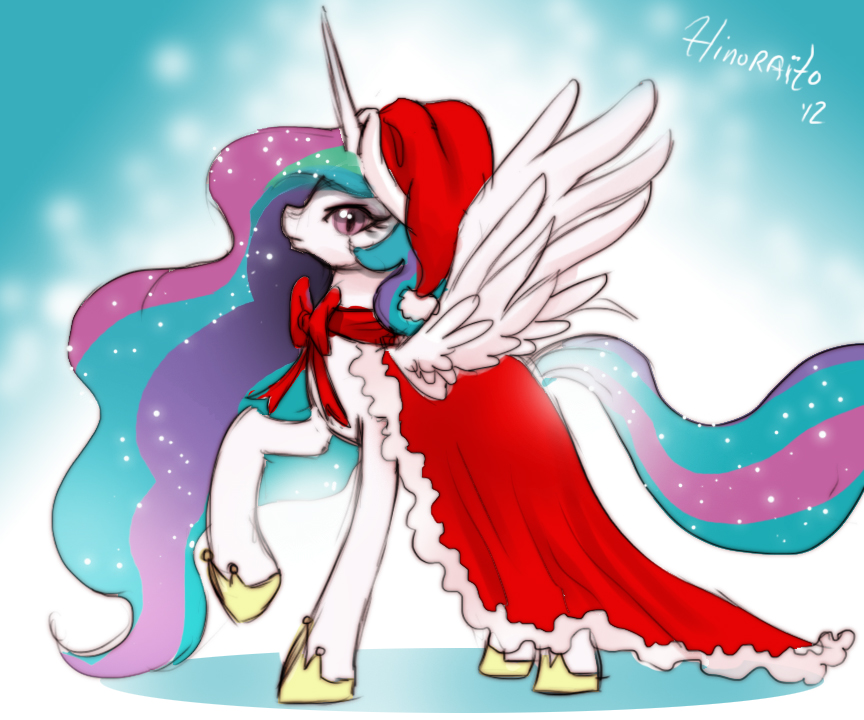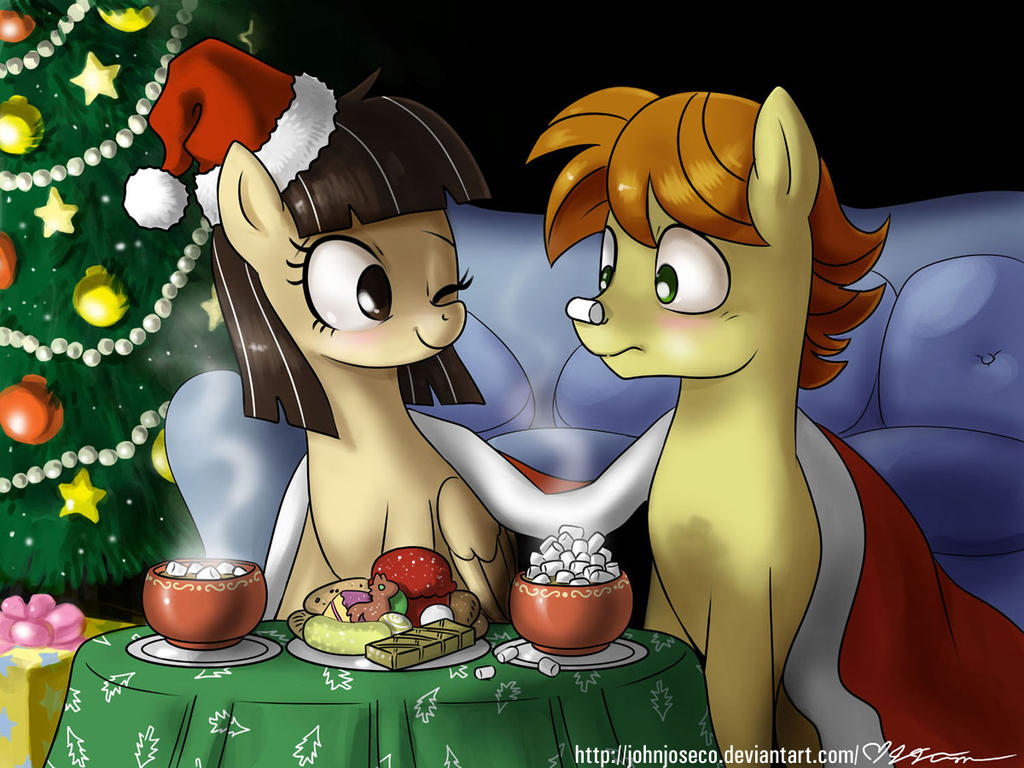You are using an out of date browser. It may not display this or other websites correctly.
You should upgrade or use an alternative browser.
You should upgrade or use an alternative browser.
My Little Pony FiM Community |OT2| I just don't know what went wrong!
- Thread starter Myke Greywolf
- Start date
- Status
- Not open for further replies.
Slamtastic
Member
I disagree, regardless of being able to anticipate ponies in an airballon or not, her actions put them in danger. If I do something, but don't anticipate negative consequences I still expect to be punished if the bad out weighs the good.
Spitfire put ponies into a Dizzitron and launched them uncontrolled into the sky. If the balloon had wandered into the testing field at that moment, there could have been a collision and those earthbound-ponies could easily have fallen. Should Spitfire be kicked out of the Wonderbolts for deliberately (not accidentally) creating an uncontrolled situation while not anticipating unexpected visitors?
It stands to reason that anyone capable of accidentally flying into the testing range is actually capable of flying, and has some ability to dodge midair, and even if they can't, they're not likely to plummet to their death. And even if everything turns out badly, there are apparently Wonderbolts all over the place.
Lightning Dust was put in charge specifically because she pushed the envelope. Regarding the tornado, LD actually asked RD to participate with her plan (unlike the high-speed turn where RD got her wing clipped), probably because she knew it was beyond either of them, but she felt they could do it together with teamwork.
Rainbow Dash agreed that they were expected not just to impress, but to push their own limits.
LD lost control and was momentarily incapacitated. RD lost control but was still fine. Their out-of-control tornado broke a scoreboard and startled some pegasus ponies.
Spitfire: A tornado? A bit excessive, but obviously effective. Spitfire approves.
Random ponies stumbled into the wrong place at the wrong time. This gives a recovered RD and the unaffected B-team the opportunity to perform a genuine midair rescue.
LD: That was awesome!
RD: My friends could have been hurt.
LD: But they weren't.
I really don't see how Lightning Dust should be penalized, let alone expelled.
DrForester
Kills Photobucket
Spitfire put ponies into a Dizzitron and launched them uncontrolled into the sky. If the balloon had wandered into the testing field at that moment, there could have been a collision and those earthbound-ponies could easily have fallen. Should Spitfire be kicked out of the Wonderbolts for deliberately (not accidentally) creating an uncontrolled situation while not anticipating unexpected visitors?
It stands to reason that anyone capable of accidentally flying into the testing range is actually capable of flying, and has some ability to dodge midair, and even if they can't, they're not likely to plummet to their death. And even if everything turns out badly, there are apparently Wonderbolts all over the place.
Lightning Dust was put in charge specifically because she pushed the envelope. Regarding the tornado, LD actually asked RD to participate with her plan (unlike the high-speed turn where RD got her wing clipped), probably because she knew it was beyond either of them, but she felt they could do it together with teamwork.
Rainbow Dash agreed that they were expected not just to impress, but to push their own limits.
LD lost control and was momentarily incapacitated. RD lost control but was still fine. Their out-of-control tornado broke a scoreboard and startled some pegasus ponies.
Spitfire: A tornado? A bit excessive, but obviously effective. Spitfire approves.
Random ponies stumbled into the wrong place at the wrong time. This gives a recovered RD and the unaffected B-team the opportunity to perform a genuine midair rescue.
LD: That was awesome!
RD: My friends could have been hurt.
LD: But they weren't.
I really don't see how Lightning Dust should be penalized, let alone expelled.
One can assume the dizzitron was on a test range, and there are rescue ponies ready to go. The tornado was like telling the cadets to go pick up trash at the park, and one of them decides to set the park on fire.
One can assume the dizzitron was on a test range, and there are rescue ponies ready to go. The tornado was like telling the cadets to go pick up trash at the park, and one of them decides to set the park on fire.
Which proceeds to spread outside the park. The tornado hit the chalkboard which was clearly outside the course meaning the balloon was as well.
Not exactly sure what's going on here
I believe that's Derpy holding an RPG and riding a deinonychus into battle while a nuclear explosion occurs some distance away.
I believe that's Derpy holding an RPG and riding a deinonychus into battle while a nuclear explosion occurs some distance away.
I guess the real question should be WHY?
Too much fur
Owlowiscious
Member
Fur?
No, sir!
No, sir!
DrForester
Kills Photobucket
Too much fur
Technically it's hair
Owlowiscious
Member
Nobodyspatzy
Member
Yes Yes yes... Scoots mane stinks. I over compensated with the other's manes, and they turned out fine, but Scoots I though I did great, and it turned out not as good. *sigh*
Anyway, her second mane is baking and on it's way, but as the gift was due today, I gave them to my sister, who love these CMCs. Just need to fix her mane (what's WRONG with her MANE?!?)
Judge for thineself, and for a certain owl, rest assured, version: Owl-specialty shall be done much better
Truth be told, Sweetie's mane makes me want to have Silhouette's mane redone, but I am far too behind on other requests. Besides SWEETIE'S MANE WAS A PAIN IN THE ASS! Eh, all in good time.
Anyway, her second mane is baking and on it's way, but as the gift was due today, I gave them to my sister, who love these CMCs. Just need to fix her mane (what's WRONG with her MANE?!?)
Judge for thineself, and for a certain owl, rest assured, version: Owl-specialty shall be done much better
Truth be told, Sweetie's mane makes me want to have Silhouette's mane redone, but I am far too behind on other requests. Besides SWEETIE'S MANE WAS A PAIN IN THE ASS! Eh, all in good time.
Rickenslacker
Banned
^ Those are great.  Though like you said Scoot's needs a bit more volume. I'm not a fan of the regular brushables but they look real nice modified like that.
Though like you said Scoot's needs a bit more volume. I'm not a fan of the regular brushables but they look real nice modified like that.
Why? Negligence is one thing, but we typically don't hold people criminally responsible for things they couldn't reasonably have anticipated. Civil liability is different, but clearly LD's punishment isn't meant as compensation for Twilight and friends. Military and police policy is typically also not to punish people who take all reasonable precautions. Probably we're too willing to give police the benefit of the doubt when they shoot someone who turns out to be unarmed or bust into the wrong house and kill someone's dog.
There's not much of a judgment call here. It's not clear that any non-flyers other than the main cast have ever tried to go to Cloudsdale or the Wonderbolt academy.
If we assume that the Wonderbolts are military organization.
http://usmilitary.about.com/library/milinfo/mcm/bl134-42-1.htm
Punitive Articles of the UCMJ
Article 134 - (Reckless endangerment)
Elements.
(1) That the accused did engage in conduct;
(2) That the conduct was wrongful and reckless or wanton;
(3) That the conduct was likely to produce death or grievous bodily harm to another person; and
(4) That, under the circumstances, the conduct of the accused was to the prejudice of good order and discipline in the armed forces or was of a nature to bring discredit upon the armed forces.
Explanation.
(1) In general. This offense is intended to prohibit and therefore deter reckless or wanton conduct that wrongfully creates a substantial risk of death or serious injury to others.
(2) Wrongfulness. Conduct is wrongful when it is without legal justification or excuse.
(3) Recklessness. Reckless conduct is conduct that exhibits a culpable disregard of foreseeable con-sequences to others from the act or omission involved. The accused need not intentionally cause a resulting harm or know that his conduct is substantially certain to cause that result. The ultimate question is whether, under all the circumstances, the accuseds conduct was of that heedless nature that made it actually or imminently dangerous to the rights or safety of others.
(4) Wantonness. Wanton includes Reckless but may connote willfulness, or a disregard of probable consequences, and thus describe a more aggravated offense.
(5) Likely to produce. When the natural or probable consequence of particular conduct would be death or grievous bodily harm, it may be inferred that the conduct is likely to produce that result. See paragraph 54c(4)(a)(ii).
(6) Grievous bodily harm. Grievous bodily harm means serious bodily injury. It does not include minor injuries, such as a black eye or a bloody nose, but does include fractured or dislocated bones, deep cuts, torn members of the body, serious damage to internal organs, and other serious bodily injuries.
(7) Death or injury not required. It is not necessary that death or grievous bodily harm be actually inflicted to prove reckless endangerment.
Lesser included offenses. None.
Maximum punishment. Bad-conduct discharge, forfeiture of all pay and allowances, and confinement for 1 year.
If we assume that the Wonderbolts are military organization.
Elements.
(1) That the accused did engage in conduct;
(2) That the conduct was wrongful and reckless or wanton;
(3) That the conduct was likely to produce death or grievous bodily harm to another person; and
(4) That, under the circumstances, the conduct of the accused was to the prejudice of good order and discipline in the armed forces or was of a nature to bring discredit upon the armed forces.
This clears Lightning Dust, IMO.
(2) There might be an argument that she was reckless with the tornado (or wanton in the precision flying event when she shoved others aside in order to pass them), but it has to be wrongful and reckless. It wasn't wrongful because they were in a training situation and she and RD both believed they were under orders to push the limits of what they felt was possible.
(3) Losing control of the tornado wasn't "likely" to cause even minor injury (to Pegasus ponies), let alone grievous bodily harm. The odds of cloudwalking earth-bound ponies appearing in the training grounds moments after LD and RD lost control of the tornado are ridiculous to the point where I think anyone would say it was impossible to anticipate.
Penalizing LD for this accident would limit training at the academy to a ridiculous degree. Nobody would ever be allowed to step outside of their comfort zone for fear of unanticipatable consequences.
Also, if we find Lightning Dust guilty of reckless endangerment with this set of guidelines, we're going to have to find Rainbow Dash guilty of it too. RD engaged in the exact same conduct, both the shoving of ponies and the creating/controlling of the tornado.
LD wasn't punished just for her behavior, but for the lack of remorse and regret she demonstrated afterward.
LD had a number of different emotions going on.
First of all, LD seemed to be genuinely congratulating RD (her friend) on her exciting rescue and their shared cloud clearing. LD implied that her actions were just as great as RD's, but she's kind of arrogant, so that's to be expected. She also insulted the other cadets.
But RD was pissed off. RD blamed LD for clipping her wing (something LD didn't really know about/brushed off) and for interfering with the other cadets (something LD had already talked with RD about).
LD looked taken aback and concerned while RD was venting these frustrations.
Then RD accused LD of nearly killing her friends, and LD looked suddenly angry, then calm, and responded "Yeah? And?"
I think that was a pretty powerful line. LD is taking ownership of everything that RD just said about her, and she's asking what's next, because she wants to know what other problems her friend is keeping bottled up inside, and because what has been said so far (in LD's opinion) is not enough. Not enough for RD to be questioning LD's leadership, and not enough for RD to be questioning LD's friendship.
RD's answer: And... I like you, but you're doing things wrong.
LD's response: I'm doing things the Wonderbolt way. Spitfire endorsed my style over yours.
RD: Well I guess that's my next stop.
So RD visits Spitfire, and Spitfire endorses LD's latest reckless actions. RD accuses Spitfire, and Spitfire doesn't come around. It's only when RD quits that Spitfire is shocked.
Then Spitfire inexplicably takes the moral high ground, as if it has always been hers, rewards RD, and punishes LD. Spitfire doesn't know anything about LD's reasoning or her feelings. All she knows is that RD barged into her office, spouted a bunch of moral nonsense, and then quit. So she orders two guards to find LD and have her brought over while she catches up to RD. Then with no explanation at all she just gives LD the evil-eye, physically strips her of her command, and then wordlessly has the guards remove LD from her sight.
Lightning Dust has her faults, but she's not the enemy in this episode, Spitfire is.
ThomasLight
Neo Member
This clears Lightning Dust, IMO.
(3) Losing control of the tornado wasn't "likely" to cause even minor injury (to Pegasus ponies), let alone grievous bodily harm. The odds of cloudwalking earth-bound ponies appearing in the training grounds moments after LD and RD lost control of the tornado are ridiculous to the point where I think anyone would say it was impossible to anticipate.
Penalizing LD for this accident would limit training at the academy to a ridiculous degree. Nobody would ever be allowed to step outside of their comfort zone for fear of unanticipatable consequences.
Also, if we find Lightning Dust guilty of reckless endangerment with this set of guidelines, we're going to have to find Rainbow Dash guilty of it too. RD engaged in the exact same conduct, both the shoving of ponies and the creating/controlling of the tornado.
I get that the ground ponies were unanticipated, I do, but the point is not whether they could have been anticipated, rather that they were in real danger in the first place due to LD (and RD).
LD had a number of different emotions going on.
First of all, LD seemed to be genuinely congratulating RD (her friend) on her exciting rescue and their shared cloud clearing. LD implied that her actions were just as great as RD's, but she's kind of arrogant, so that's to be expected. She also insulted the other cadets.
But RD was pissed off. RD blamed LD for clipping her wing (something LD didn't really know about/brushed off) and for interfering with the other cadets (something LD had already talked with RD about).
LD looked taken aback and concerned while RD was venting these frustrations.
Then RD accused LD of nearly killing her friends, and LD looked suddenly angry, then calm, and responded "Yeah? And?"
By pony standards, that's sociopathic behavior.
DrForester
Kills Photobucket
Huh. Must be a post-scratch session.
Owlowiscious
Member
Apparently Kelly Metzger has been Spitfire since The Best Night Ever
https://twitter.com/angelheadhipstr/status/269258509466611715
https://twitter.com/angelheadhipstr/status/269258509466611715
ThomasLight
Neo Member
Rhomega Beta
Member
Slamtastic
Member
Now I know your weakness!
- Status
- Not open for further replies.


